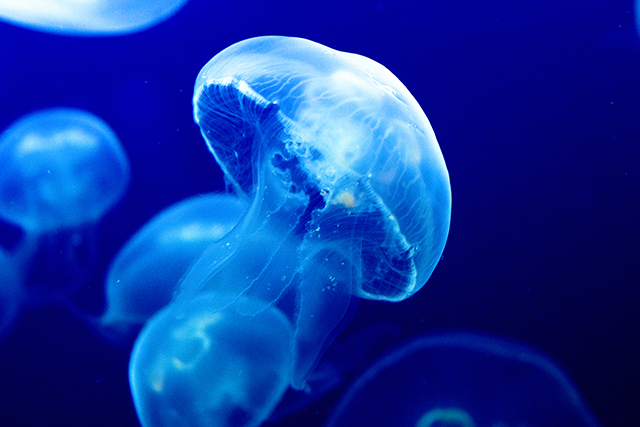Jellyfish plaster found to help chronic wounds heal; the collagen helps new tissue grow
02/11/2019 / By Jhoanna Robinson

The future of wound dressing may come from the unlikeliest of sources — jellyfish. Studies have revealed that jellyfish contain collagen, which can assist in tissue regrowth and help with the healing process. Experts believe that this is because collagen generates cells such as fibroblasts and keratinocytes which sanitize the wound and encourage the growth of new blood vessels to speed up the process of healing.
This finding is great news for people who suffer from chronic wounds, a condition defined as an injury that takes more than six weeks to heal. Chronic wounds can become foot ulcers, pressure sores or bed sores, and leg ulcers. These conditions are common complications of conditions such as diabetes or hypertension. At least 200,000 people suffer from the condition in the U.K. alone.
One of the main reasons why wounds take long to heal is a poor supply of blood and oxygen to the affected area, as well as low levels of the growth factor necessary for healing tissues.
“For wounds that remain difficult to repair, an adjunct such as a collagen scaffold encourages healing. Harvesting this from jellyfish is novel and encouraging in the journey to eliminating chronic wounds and improving the lives of many people,” said Stella Vig, a consultant vascular surgeon at Croydon University Hospital in Thornton Heath, England.
Scientists have long studied the possibility of jellyfish as a material for treating wounds. In a study published in the Journal of Biomedical Materials, researchers discovered that the collagen found in jellyfish was safe for human use and that it had the potential to be used in treating wounds. To test the compatibility of jellyfish collagen with its host, researchers conducted in vivo testing on Wistar rats. The rats, which had a small portion of their back skin clipped, were provided with either a jellyfish collagen sponge or a bovine collagen sponge and were observed for at least a month. The rats were evaluated after each week, to determine how well the sponge integrated with the host. After a month of testing, researchers found that host rats were able to accept jellyfish collagen better than bovine collagen. The hosts that were given jellyfish collagen showed no necrosis, which is a sign that no toxins were created during the healing period. This opens up the possibility of jellyfish collagen as a biomaterial for medical use.
The power of the elements: Discover Colloidal Silver Mouthwash with quality, natural ingredients like Sangre de Drago sap, black walnut hulls, menthol crystals and more. Zero artificial sweeteners, colors or alcohol. Learn more at the Health Ranger Store and help support this news site.
How collagen affects wound healing
Collagen has long been favored as a wound dressing for people looking to use a flexible and comfortable gauze. The material can be used for any type of wound, except for third-degree burns and injuries which have deteriorated into burnt dead tissue. As collagen comes from animal sources, people with allergies to cattle, bird, or swine products are also advised against the use of collagen as a wound dressing. (Related: Take Dietary Collagen to Reduce and Prevent Wrinkles.)
One more benefit of using collagen is its capability to establish a barrier between the wound and the surrounding bacteria. This shields it against the spread of antimicrobial agents and lessens the overall risk of infection. Collagen dressings are also structured in a way as to stay compressed without necessarily feeling too tight around the skin, so the dressing will not stick to dried-up areas of the wound. The material also has the ability to stay soft and provide a moist environment for the wound, and it can help avoid instances of irritation and discomfort. Moreover, since collagen has the uncanny ability to stick to a wound for at least seven days, the need to change bandages is minimized.
Sources include:
Tagged Under: alternative medicine, bed sores, biomaterials, biotech, collagen, gangrene, heailng, jellyfish, keratinocytes, leg ulcers, medical tech, natural medicine, research, tissue regrowth, Wound Healing



















